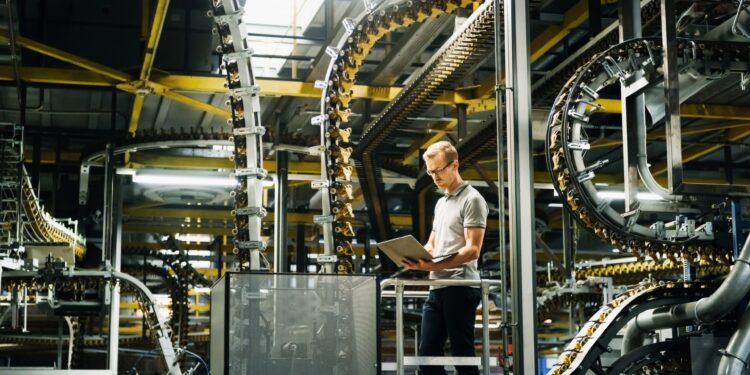German Economy Minister Robert Habeck said this month that his country’s economic conditions are “unsatisfactory” after lowering official expectations from a growth of 0.3% to a contraction of 0.2%. This comes in the wake of a decline in the gross domestic product by 0.3% last year, which means that… Germany is facing its first two-year recession in more than 20 years.
According to the British newspaper The Economist, Germany’s economy – the largest economy in Europe – has barely slowed since the Corona pandemic, lagging behind the rest of the rich world, as Isabel Schnabel of the European Central Bank noted that the growth of the euro zone excluding Germany has been “remarkably resilient” since 2021. And faster than many other major economies.
But talking about the eurozone economy without Germany, according to the Economist, is like talking about the American economy without California and Texas, and the country that was once an engine of European growth has become a burden, according to the Economist.
The newspaper pointed out that it is difficult to imagine worse conditions for the German economy dependent on exports and heavy industries than those it has faced since 2021, when energy prices rose with the outbreak of the Russian-Ukrainian war, and now surplus industrial capacity in China is causing chaos abroad.
However, as comfortable as it may be to blame external factors for the economy’s weakness, Germany’s problems run deeper, many of them domestic, and, moreover, the political response is hampered by the government’s divided tripartite coalition.
Industrial production
The Economist stated that industrial production has suffered in recent years, as energy-intensive industries, such as chemicals, metallurgy, and the paper industry, were particularly severely affected, which together represent only 16% of German industrial output, but consume nearly 80% of industrial energy. .
Many companies responded to rising energy costs by temporarily halting production.
According to the British newspaper, the changing patterns in global demand pose a greater problem for most companies, and as Pictet Wealth Management noted, the economic relationship between Germany and China has transformed, after the growth of the two countries was complementary in the first decade of the 21st century, when Germany sold cars and chemicals. and machinery to China, and in turn purchased consumer goods and intermediate inputs, such as batteries and electronic components.
But now China is able to produce much of what it once imported, and in some cases, it has become a serious competitor for export markets, especially in German staples that it mainly produces, such as cars.
But pessimism about German industry may be exaggerated; Although manufacturing output has declined since 2020, its gross value added has been remarkably stable, and in many cases, manufacturing companies have been able to shift to producing higher value goods even as they lose market share.
Last year, as the overall economy contracted, trade was among the growing sectors, which appears to be the same this year.
According to the newspaper, the growth in real household incomes with low inflation has not raised demand, but it should eventually appear in consumer spending, and the worst of the energy crisis that the industry has suffered has passed.
Growth recovery
Most observers expect growth to pick up next year, and the government expects growth of 1.1% in 2025 and 1.6% in 2026, based on the assumption that private consumption will begin to recover. For some skeptics, ministers assume this will happen in part because of their growth-stimulating policies.
But late improvement will not mean escape from longer-term structural problems, as the weakness of the German economy precedes the recent geopolitical and economic shocks, and according to Schnabel’s observation this month, German GDP at the end of 2021 was only 1% higher than its level 4 years ago, compared to Growth of 5% in the Eurozone (excluding Germany) and more than 10% in the United States.



